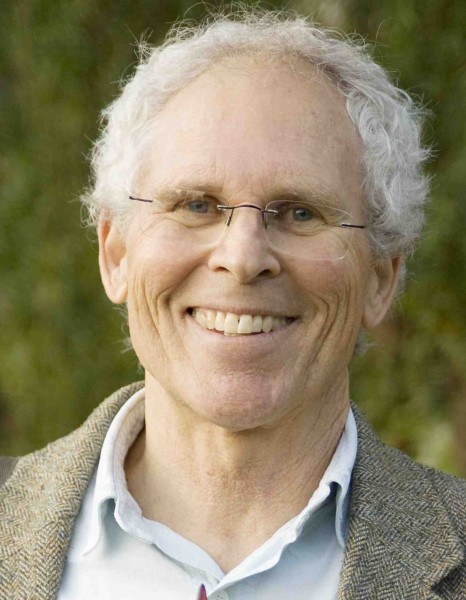Climate Inferno Razes Laguna Writers’ Cabin

“The ensuing firestorm created 150 mph winds billowing smoke to 50,000 feet creating pyro-cumulo-nimbus-flammagenitus clouds that fired its own lightning bolts into the ground. 140 mph ‘Firenados’ ripped the roots of giant pines and firs right out of the ground.” So spoke Tom and Gayle Joliet, two writers and retired teachers who have lived in Laguna Beach for decades, in describing the recent Creek Fire that razed their beloved cabin, built in 1929, on the shores of Huntington Lake in the Sierras. Their speaking venue was the November meeting of the Laguna chapter of Citizens’ Climate Lobby.
A glorious part of the Joliets’ world has been reduced to ashes. The loss has been so hard-hitting that when they talk about it I can detect the emotion in their voices. That mega blaze augurs the ever-increasing destructiveness of an ever-warming planet.
As a historian of California’s past, I am well aware of the state’s recurrent droughts, wildfires, and forest management problems. I’m also aware that 57% of California’s forests are owned and managed by the federal government, not Sacramento. That said, The Sacramento Bee reported the scientific community sharply dismisses President Trump’s spurious belief that California is primarily responsible for these conflagrations. Moreover, what about the devastating wildfires that have burned through California’s wine country, which assuredly is not forested? Obviously, forest mismanagement has nothing to do with those costly and life-threatening burns.
Being thoughtful and evidence-valuing people, the Joliets turned to science and demonstrable facts to better understand their loss. They found that the state’s wildfires are becoming more destructive (this year’s wildfires being the worst in California’s recorded history) and the fire season longer lasting at the same time that the climate is warming. What is the connection between warming temperatures and wildfires? they asked themselves.
Their search for answers led them to ecologist and fire expert George Wuerthner, author of “Wildfire: A Century of Failed Forest Policy.” The Joliets summarized for me Wuerthner’s findings:
- It is climate and weather, not fuels, that ultimately control all fires. Of course, you need some fuel, but fuels alone will not create a large “mega” fire. If it were fuels then coastal Washington and Oregon, where the most fuel in North America exists, would be the center of the worst blazes, not California. In short, because climate and weather are the major drivers of wildfires, we cannot log or thin our way to any massive fire reduction.
- When you have the right climate and weather conditions of drought, high temperatures, low humidity and, most importantly, wind, you get infernos that cannot be controlled—until the weather changes. These factors, when combined, result in the “extreme fire weather,” so much in evidence in California, and particularly in the Huntington Lake region.
- Third, climate change is exacerbating the weather conditions that are driving large blazes. It is lengthening the period when any ignition can grow into large wildfires, drying fuels, so they more readily burn and increase the wind that ultimately drives flames through, over, and around fuel reductions.
Drawing on scientific opinion and their own observations and reliance on evidence, the Joliets concluded that the loss of their cabin was inextricably tied to environmental conditions shaped by global warming. For example, the bark beetle infestations that weakened the resilience of trees surrounding their cabin resulted from the climate-worsened drought, which in turn prevented trees from extruding the sap that otherwise would have fought off the infestation. Thus weakened, the moisture-deprived trees became increasingly flammable.
Having co-written an excellent children’s storybook, set in Laguna Beach, on marine ecology, “Alani and the Giant Kelp Elf” (Laguna Wilderness Press), maybe this husband-and-wife duo will write a children’s book on climate.
Tom Osborne is writing a book on California’s development into the nation’s environmental leader. Email him at [email protected].




